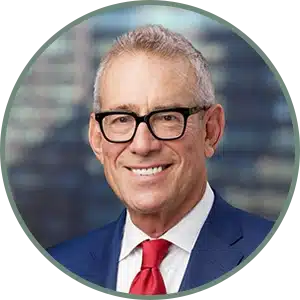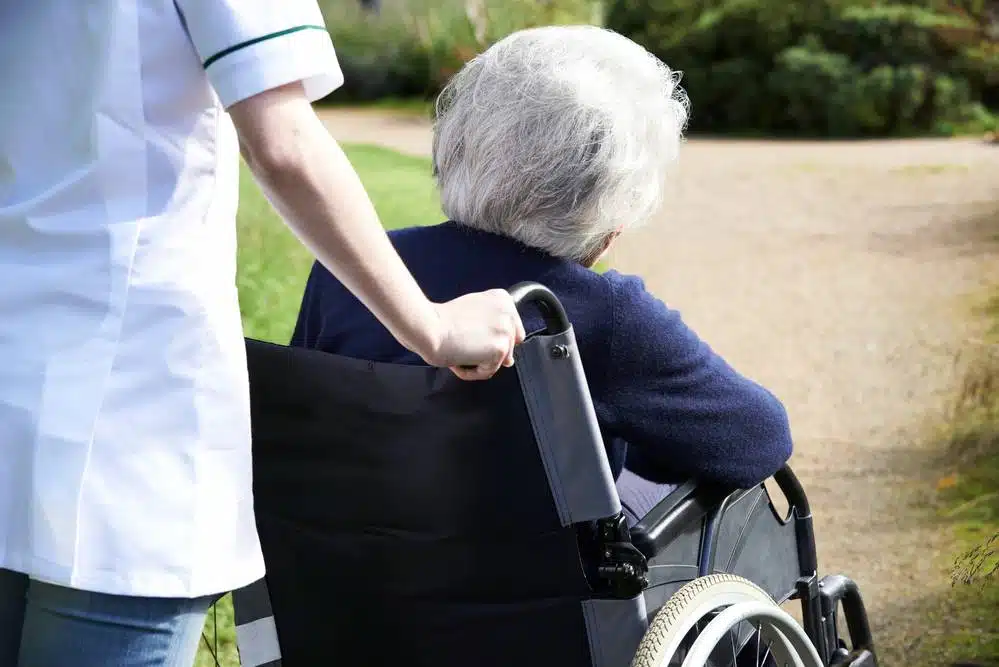
Content Reviewed by:
Steven M Levin
Content Reviewed by: Steven M Levin
Accordion Content
Since 1976, Steve Levin has been dedicated to helping people injured by others’ negligence. He is one of the first attorneys in the U.S. to prosecute nursing homes for abuse and negligence. He’s also helped write new legislation that governs the operation of nursing homes, including the Illinois Nursing Home Care Act. Moreover, Levin & Perconti has obtained the top three jury verdicts in nursing home negligence cases in Illinois.
Virginia Nursing Home Operator Found Guilty of Health Care Fraud
In Norfolk, Virginia, the operator of Turning Points Residential Care has been sentenced to two years in prison for defrauding Medicaid. According to July 2, 2021 court documents, 47-year-old Lopez Scott submitted more than $188,000 in false claims for a residential nursing facility his business was authorized to use to provide residential support services and skilled nursing services to recipients of Medicaid.
“For three years, the defendant used his position as a nursing home operator to obtain over $188,000 from the Virginia Medicaid program fraudulently,” said Raj Parekh, Acting U.S. Attorney for the Eastern District of Virginia. “Health care fraud takes funding and critical services away from those who truly need it. We will continue to hold accountable those who exploit these essential health care programs at the expense of vulnerable members of our communities.”
According to federal court documents:
- Between October 2016 and October 2019, the operator submitted numerous false and fraudulent claims to Virginia Medicaid.
- Scott misrepresented 5,847.75 hours of skilled nursing services that had been provided to a Medicaid recipient.
- The operator received approximately $188,297.39 in health care payments, to which he was not entitled.
- Scott created fraudulent entries of nursing notes in the electronic office records of Turning Points, including the forged signature of a nurse, which falsely indicated that such services had been provided.
- The guilty operator also asked a nurse to falsely state to investigators that she had continued to work for the company even after her employment had ended.
“When Lopez Scott launched his fraud scheme, he threatened the integrity of the Medicaid program and illegally pocketed taxpayer funds meant to pay for the legitimate care of needy patients,” said Special Agent in Charge Maureen R. Dixon of the U.S. Department of Health and Human Services (HHS) Office of the Inspector General. “Along with our law enforcement partners, we will continue to hold such fraudsters accountable for their unprincipled actions.”
Federal Laws Attempt to Curb Medicare Fraud
Committing Medicare fraud can expose individuals or entities to a potential criminal, civil, and administrative liability and may lead to imprisonment, fines, and penalties. Federal laws governing Medicare fraud and abuse include the:
- False Claims Act (FCA)
- Anti-Kickback Statute (AKS)
- Physician Self-Referral Law (Stark Law)
- Social Security Act, which includes the Exclusion Statute and the Civil Monetary Penalties Law (CMPL)
- The United States Criminal Code
In addition to Medicare Part A and Part B, Medicare Part C and Part D and Medicaid programs prohibit the fraudulent conduct addressed by these laws.
Healthcare Fraud and Medicare Abuse Are Entirely Unacceptable in All Forms
For the last decade, federal and state governments have been partnering with private law firms to sue large nursing home chains for negligent care related to Medicare and Medicaid fraud. However, the public is also subjected continuously to news of executives swindling money through laundering and kickback schemes with vendors and of Medicare and Medicaid fraud through overbilling.
The Centers for Medicare and Medicaid Services (CMS) defines fraud as “the intentional deception or misrepresentation that the individual knows to be false or does not believe to be true,” and that is made “knowing that the deception could result in some unauthorized benefit to himself or herself or some other person.”
CMS goes on to say that Medicare fraud typically includes any of the following:
- Knowingly submitting, or causing to be submitted, false claims or making misrepresentations of fact to obtain a Federal health care payment for which no entitlement would otherwise exist
- Knowingly soliciting, receiving, offering, or paying remuneration (e.g., kickbacks, bribes, or rebates) to induce or reward referrals for items or services reimbursed by Federal health care programs
- Making prohibited referrals for certain designated health services
Some common examples of suspected Medicare fraud or abuse are:
- Billing for services or supplies that were not provided
- Providing unsolicited supplies to beneficiaries
- Misrepresenting a diagnosis, a beneficiary’s identity, the service provided, or other facts to justify payment
- Prescribing or providing excessive or unnecessary tests and services
- Violating the participating provider agreement with Medicare by refusing to bill Medicare for covered services or items and billing the beneficiary instead
- Offering or receiving a kickback (bribe) in exchange for a beneficiary’s Medicare number
- Requesting Medicare numbers at an educational presentation or in an unsolicited phone call
- Routinely waiving co-insurance or deductibles
Stay Aware and Seek Legal Help
If you believe you have a fraud problem, are engaged in a problematic relationship, or have been following billing practices you now realize are wrong, Levin & Perconti’s nursing home abuse and neglect, and Medicare fraud attorneys in Illinois suggest you follow CMS’s advice to:
- Immediately stop submitting problematic bills
- Seek knowledgeable legal counsel (schedule a free and confidential consultation with Levin & Perconti attorneys)
- Determine what money you collected in error from patients and from Federal health care programs and report and return overpayments
- Unwind the problematic investment by freeing yourself from your involvement
- Separate yourself from the suspicious relationship
- Consider using self-disclosure protocols, as applicable
Anyone involved with Medicare Fee-For-Service providers should be aware of the risk these illegal acts create. There will also be implications for patients and residents. The importance of protecting patients from the money-hungry overzealous actions of administrators, clinicians, third-party care providers, third-party payers, and large nursing home chains should remain a priority. Fraud schemes can also be present in independent ventures and within unlawful activities by an institution or separate group acting as providers and suppliers.
Legal Consequences for Nursing Home Operators Who Commit Fraud
Suppose you believe that you have been unknowingly involved in Medicare and Medicaid fraud or that a loved one may be affected by fraud in any form in the State of Illinois. In that case, you need to act immediately. If your employer is taking part in a fraud scheme and residents are paying the price, you should call us at 877-374-1417 or in Chicago at 312-332-2872 to set up a FREE consultation to help you understand all of your legal options and protections. Calls and discussions with our nursing home negligence attorneys are always safe and confidential.



